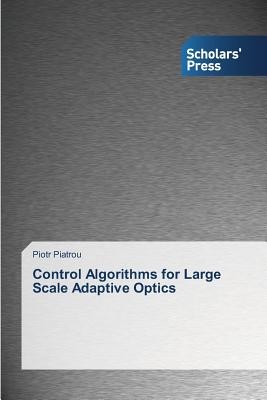
- We will send in 10–14 business days.
- Author: Piotr Piatrou
- Publisher: Scholars' Press
- Year: 2014
- Pages: 92
- ISBN-10: 3639717724
- ISBN-13: 9783639717723
- Format: 15.2 x 22.9 x 0.6 cm, softcover
- Language: English
- SAVE -10% with code: EXTRA
Reviews
Description
In this book the problem of making efficient large scale Adaptive Optics (AO) system control algorithms for the new giant telescopes is addressed. The efficiency of the AO control algorithms is evaluated in several respects, such as computational complexity, error rejection and robustness. The results presented here are: 1. Robustness study of Sparse Minimum Variance Pseudo Open Loop Controller (POLC) for multi-conjugate adaptive optics (MCAO). It is shown through numerous simulations that the POLC algorithm is highly robust against various system errors. 2. Study of Predictive Kalman Filter (KF) and Minimum Variance (MV) control algorithms for MCAO. The limiting performance of the non-dynamic MV and dynamic KF-based algorithms for MCAO is evaluated through Monte-Carlo simulations. The validity of simple near-Markov auto-regressive phase dynamics model has been tested. No performance gain found from the use of the KF algorithm in comparison to the simpler MV algorithm. 3. An efficient sparse predictive Minimum Variance control algorithm for MCAO not introducing extra computational burden. For students and engineers working in the area of Adaptive Optics.
EXTRA 10 % discount with code: EXTRA
The promotion ends in 17d.17:15:48
The discount code is valid when purchasing from 10 €. Discounts do not stack.
- Author: Piotr Piatrou
- Publisher: Scholars' Press
- Year: 2014
- Pages: 92
- ISBN-10: 3639717724
- ISBN-13: 9783639717723
- Format: 15.2 x 22.9 x 0.6 cm, softcover
- Language: English English
In this book the problem of making efficient large scale Adaptive Optics (AO) system control algorithms for the new giant telescopes is addressed. The efficiency of the AO control algorithms is evaluated in several respects, such as computational complexity, error rejection and robustness. The results presented here are: 1. Robustness study of Sparse Minimum Variance Pseudo Open Loop Controller (POLC) for multi-conjugate adaptive optics (MCAO). It is shown through numerous simulations that the POLC algorithm is highly robust against various system errors. 2. Study of Predictive Kalman Filter (KF) and Minimum Variance (MV) control algorithms for MCAO. The limiting performance of the non-dynamic MV and dynamic KF-based algorithms for MCAO is evaluated through Monte-Carlo simulations. The validity of simple near-Markov auto-regressive phase dynamics model has been tested. No performance gain found from the use of the KF algorithm in comparison to the simpler MV algorithm. 3. An efficient sparse predictive Minimum Variance control algorithm for MCAO not introducing extra computational burden. For students and engineers working in the area of Adaptive Optics.


Reviews